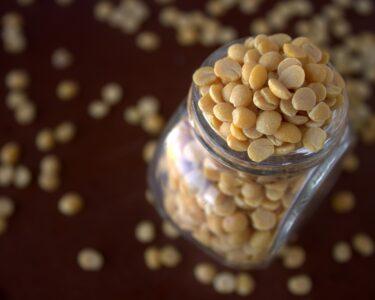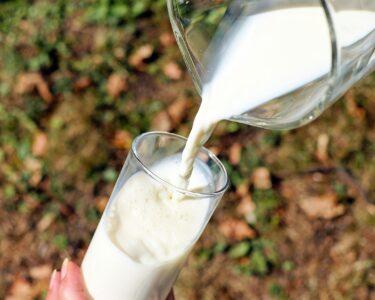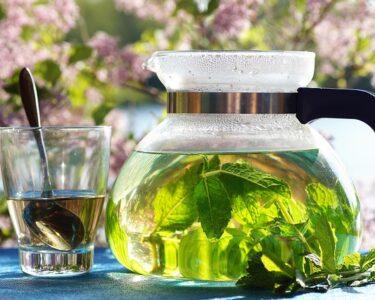Dengue is a serious viral infection, transmitted by female Aedes aegypti mosquito. The incidence of dengue in the world is dramatically increased in recent decades. Dengue virus is transported from one place to another by infected travelers. In each year, the number of cases increases, the disease spreads to new areas, and more explosive outbreaks are occurring. Dengue fever is found in tropical and sub-tropical climates worldwide, mostly in urban and semi-urban areas. About half of the world’s population is now at risk.(1)
Dengue viruses are the causative agents of dengue fever (DF) and dengue hemorrhagic fever. Dengue fever is a common communicable disease characterized by the occurrence of high fever, severe body aches, and intense headaches. The disease is quite severe in young children as compared to adults. (2)
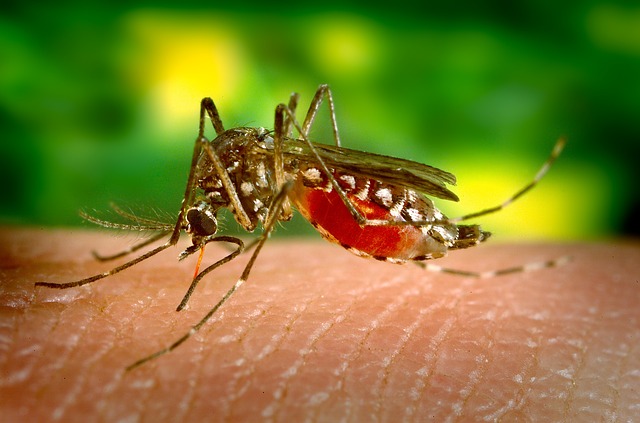
Facts and Figures regarding Dengue infection and associated death in India
It is scary to know that the prevalence of Dengue viral infection dramatically increases in the world in the last 20 years. Consequently, in our country, the incidence of Dengue fever increases day by day.
Between the period of 1996 to 2015, the number of patients infected with dengue virus increases by 500%. In 1996, there were only 16,517 cases of dengue which increases to 99,849 cases in 2015.
In spite of an increasing number of cases, there was a gradual decrease of about 40% in mortality of Dengue patients. In the year of 1996, 545 patients died in dengue whereas, in 2015, only 220 persons died in Dengue infection.
In 2015, the prevalence of Dengue infection was highest in Delhi (15,867), followed by Punjab (14,128), Haryana (9921) and West Bengal (8516). A maximum number of deaths due to dengue was recorded in Delhi (60) followed by Kerala (25), Maharashtra (23) and Punjab (18).
Though the number of Dengue patients per year increases but the mortality rate among the Dengue patients decreases gradually in India. This may be caused by the following reasons-
- Improvements in the Indian healthcare systems
- easy accessibility to doctors and hospitals
- awareness among the patients and doctors
- early reporting of the patients to the doctor
- Proper diagnosis of the Dengue infection at an early stage
- availability of timely and better treatment options for patients (3)
Summary
Dengue is a flue like a serious viral infection, caused by the Dengue virus. Dengue is a mosquito-borne communicable disease. It is transmitted by female Aedes aegypti mosquitoes. Anyone, infants, children or adult men and women, can be infected by the Dengue virus. The disease is more severe in young children as compared to adults.
Throughout the world, the incidence of dengue is dramatically increased in the last two decades. In each year, the number of cases increases, the disease spreads to new areas, and more explosive outbreaks are occurring. Dengue is mainly found in the tropical and sub-tropical countries.
In India, the incidence of Dengue increased by 500% in the last 2 decades. But surprisingly the number of deaths decreases gradually. This may be due to the overall improvement of the Indian health care system as well as the growing awareness of the patients.
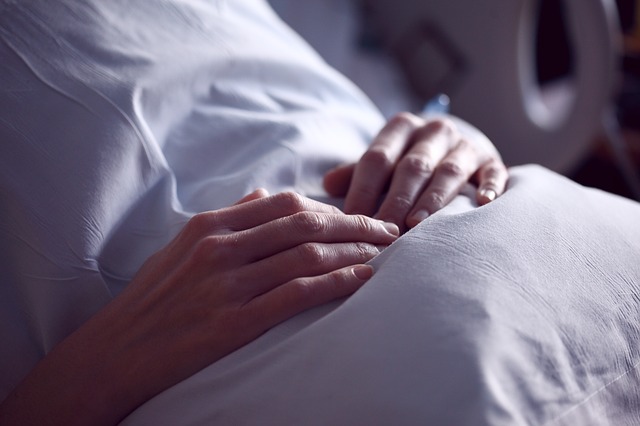
When the prevalence of Dengue is highest?
In India Dengue occurs more frequently in the rainy season and immediately afterward (July to October). (5) The incidence of Dengue is in peak in the rainy season, because the number of mosquitoes increases in Monsoon. (4)
How dengue is spread?
The Dengue virus is present in the blood of the Dengue patient. When an Aedes mosquito bites a patient and sucks his/her blood, the dengue virus enters into the body of the body. Then when the infected mosquito bites a normal human being, the virus is injected into the person’s body and he/she becomes infected. The first symptom of the disease appears in about 5-7 days after the infected mosquito bites a healthy person. (6)
Common Symptoms of Dengue
The Dengue viral infection causes a flu-like illness and occasionally develops into a potentially lethal complication called severe dengue.(1) The most common symptoms of Dengue fever include-
- Sudden onset of high fever with a feeling of chills (“Thandi Lagna”).
- Severe Headache,
- Pains in muscles and joints.
- Pain behind the eyeballs especially on pressing the eyes or on moving the eyeballs.
- Extreme weakness,
- loss of appetite,
- Feeling of nausea.
- Change in taste sensations in the mouth.
- Pain in the abdomen by itself or on touching.
- Mild pain in the throat.
- The patient feels generally depressed and very sick.
- Rash on the skin: Pinkish red rash appears on the skin in the form of diffuse flushing, mottling or pinhead eruptions on the face, neck, and chest. Later on, the rash may become more prominent.
The entire duration of Classical Dengue fever lasts for about 5-7 days and the patient recovers.(7)
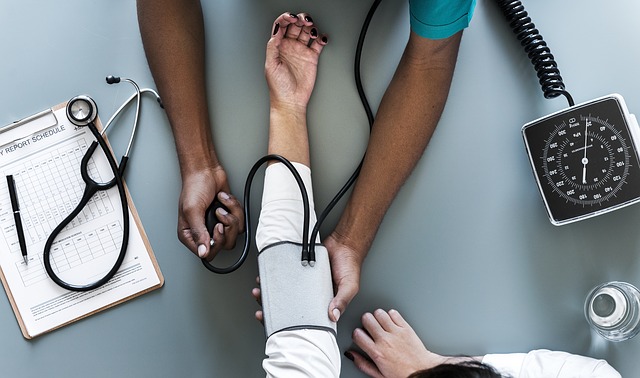
Why Dengue is a Medical Emergency?
There is no specific treatment for dengue/ severe dengue, but early detection and access to proper medical care lowers fatality rates below 1%.
Early recognition and prompt initiation of appropriate treatment are vital to reduce the severity of the symptoms and to prevent complications.(8)
Dengue patients frequently experience many complications that need immediate medical attention. Severe abdominal pain, persistent vomiting, rapid breathing, bleeding gums, fatigue, restlessness and blood in vomit, etc are the warning signs. Any Dengue patient experiencing any of the above symptoms should immediately rush in the nearby hospital, requiring immediate medical attention. After the appearance of the first warning symptom, the next 24–48 hours are the critical period requiring proper medical care to avoid complications and the risk of death. (1)
Is hospitalization essential for the treatment of Dengue patients?
Dengue viruses are responsible for dengue fever (DF) and dengue hemorrhagic fever. Since dengue fever is usually a mild self-limiting disease, most patients can be treated at home. But for the treatment of dengue hemorrhagic fever, the patient should be hospitalized.
But if complications arise, hospitalization is also needed for the patients suffering from Dengue fever. The doctor may suggest hospitalization if the patient experience the following conditions-
- Bleeding
- Fever is not reduced even after paracetamol intake
- The patient becomes semi-conscious or unconscious
- Patients who cannot eat or drink due to extreme weakness should also be hospitalized.
- If the Dengue patient is suffering from other diseases like cardiac problems and/or anemia and/or obesity, they should be hospitalized.
- Infants (age <1 year) are at high risk of developing severe DHF, they are also required immediate hospitalization. (8)
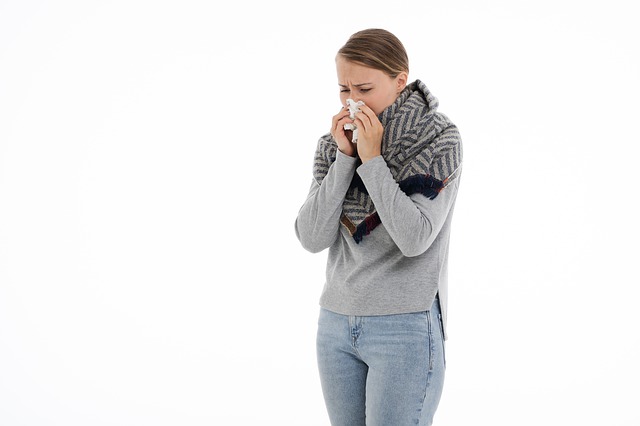
Treatment of dengue fever
- Both dengue fever and the febrile phase of DHF are managed similarly. Paracetamol is the only drug used to treat fever in Dengue infection, with a maximum dose of 60mg/kg/day.
- Use of non-steroidal anti-inflammatory drugs (like aspirin) in Dengue infection may result in gastric irritation or provoke gastrointestinal bleeding.
- Higher dose of paracetamol may cause liver damageIf the temperature remains high despite the administration of paracetamol, a sponge bath is recommended.
- An antiemetic such as domperidone may be used to treat vomiting.
- A gastric mucosal protective agent such as cimetidine may be given to patients with evidence of gastrointestinal bleeding or at risk of such bleeding due to very low platelet counts.
- Administration of intravenous fluids is usually necessary for Dengue patients with severe vomiting or dehydration.
- Platelet counts and packed cell volume should be measured daily because plasma leakage is a common complication of Dengue infection. Platelet counts <100 × 109/l and rises in packed cell volume of >20%, reflect significant plasma loss.
- Regular assessment of fluid and electrolyte balance and monitoring for the development of complications is vital.
- Liver enzymes should be measured, as acute liver failure and hepatic encephalopathy are known complications of Dengue infection. (8)
Summary
The incidence of Dengue is in peak in the Monsoon, as the number of mosquitoes increases in Monsoon. When the female Aedes mosquito bites a Dengue infected person, it becomes infected and when this infected mosquito again bites a normal person, he becomes infected by the Dengue virus.
The common symptoms of Dengue fever include a high fever with joint pain, extreme weakness, severe headache, nausea and vomiting, and low platelet count
Dengue is a self-limiting disease. There is no specific treatment for Dengue fever. But early detection of the disease and appropriate medical care is essential to avoid complications.
Severe abdominal pain, persistent vomiting, rapid breathing, bleeding gums, fatigue, restlessness and blood in vomit, etc are the warning signs of Dengue fever. The patient experiencing any of the above symptoms should immediately rush into the hospital, requiring immediate medical attention.
Paracetamol is the only drug used to treat fever in Dengue infection. An antiemetic may be used to treat vomiting. Intravenous fluid administration may be needed to prevent dehydration. Regular assessment of blood platelet count and monitoring of electrolyte balance are necessary.

Why proper Diet is necessary for Dengue patients?
Dengue is a self-limiting disease. It is a serious flu-type viral infection. The symptoms are mild to moderate in some patients whereas these are severe in other Dengue patients.
Intake of a proper diet with the drinking of plenty of liquids is beneficial for Dengue patients for several reasons. A proper diet-
- maintains better nutritional status
- increases appetite
- helps to maintain electrolyte balance
- Rehydrates the body and prevents dehydration
- Reduces the severity of symptoms
- Reduces the risk of serious complications
- Ensure early recovery
- Increases the platelet count (7)
Initially, a liquid to soft diet is recommended for the patients. As the patient recovers gradually the diet should be changed to a more normal diet. It is found that the liquid diet is better tolerated than a normal diet.
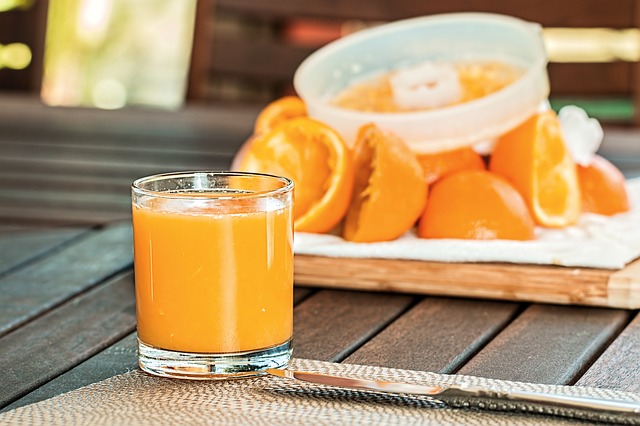
Principles of Dietary management for Dengue viral infection
- A soft, balanced, and nutritious diet is recommended for mild Dengue patients.
- If the Patient refuses to take the soft diet, then the liquid diet should be given.
- For patients with severe Dengue fever liquid diet is prescribed.
- Adequate fluid administration is essential for the treatment of Dengue patients.
- To prevent dehydration, an adequate amount of liquid foods like chaas, buttermilk, fruit juices, vegetable soups, dal water should be included in the diet.
- Soft drinks and alcoholic beverages should be avoided.
- Among the beverages, fruit juices is the best which are to be incorporated in liberal amounts.
- Fermented milk products like Dahi, yogurt, buttermilk, chaas, etc. are to be included in the diet. These foods are rich in probiotics which are helpful in the early recovery of the patient.
- Vitamin-C rich foods like guava, lemon, grapefruit, etc. are useful to reduce the severity of the symptoms and to prevent complications.
- Too hot tea or coffee should be avoided.
- All fried foods and fatty foods should be omitted.
- Small and frequent feeding is encouraged
- Coconut water and lemon water are beneficial for them. (8)
Summary

A proper diet and drinking a lot of water is necessary for the early recovery of Dengue patients. Initially, a liquid to soft diet is recommended for the patients. As the patient recovers gradually the diet should be changed to a more normal diet. It is found that frequent intake of a small liquid diet is better tolerated than a normal diet.
The diet of the patient should be cooked with minimum oil and spices. All fried foods, alcoholic beverages, soft drinks, too hot tee or coffee, should be avoided.
The diet should include plenty of water, coconut water, and lemon water. All types of freshly prepared fruit juices and vegetable soups are to be included. Buttermilk, chaas, dahi, etc. should be given liberally.
Dengue can be prevented by Vaccination?
No, guys, to date, there is no vaccine is available for preventing dengue infection. (8)
How Dengue can be prevented?
Female Aedes aegypti mosquitoes are the main culprit of spreading the disease, so Dengue can be prevented by controlling or killing the mosquitoes. So, let’s discuss the basic characteristics of them.
Basic Characteristics of Aedes aegypti mosquitoes
- Aedes aegypti are mainly found in tropical and subtropical areas. They can breed in polluted water or a small amount of water like excess water in flower vases or that in coconut shells.
- Eggs can survive for long periods, even in the absence of water. The eggs can remain dry for over a year in their breeding habitat and hatch when in contact with water.
- Improper disposal of garbage or inadequate wastewater drainage facilitates increases the mosquito densities in endemic areas.
- The incidence of Dengue is in peak in the rainy season, because the number of mosquitoes increases in Monsoon.
- These mosquitoes bite in the day time.
- Female Aedes aegypti bites multiple people during each feeding period, so a single mosquito can infect many people at a time.
- They usually rest indoors, mainly in living rooms and bedrooms which increases the risk of persons exposed to mosquito bites.
- Decreases the contact of the mosquitoes with insecticides sprayed out-doors, causing difficulty in controlling them. (8,1)
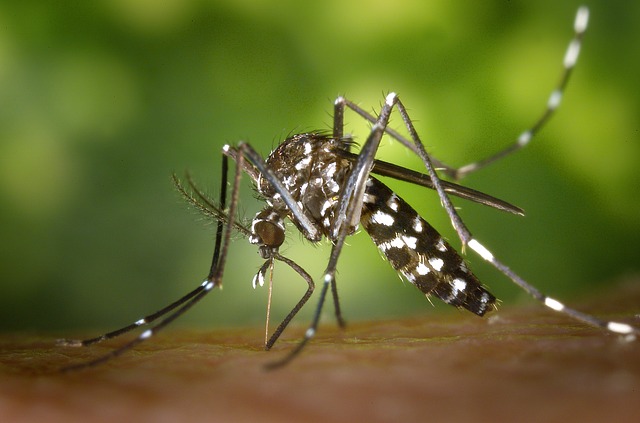
Other diseases transmitted by Aedes aegypti mosquitoes
- Chikungunya,
- Yellow fever and
- Zika infection. (1)
How can you prevent Dengue viral infection in your family?
Since there is no specific treatment and/ or vaccine is available against Dengue Fever, controlling the mosquito growth is the only way to prevent the spreading of Dengue. All of us should take preventive measures meticulously. Taking the following household measurements kills the mosquitoes and prevent the Dengue infection.
- Cover all the containers used for water storage.
- Emptying all the domestic water storage containers every week.
- Water from coolers and other small containers (plastic containers, buckets, used automobile tires, water coolers, pet watering containers, and flower vases) should be emptied at least once in 3-4 days.
- Wearing long-sleeved clothes reduces the risk of the mosquito bite.
- Fitting window screens prevent the entry of mosquito inside the house.
- Mosquito repellents, coils, vaporizers, etc. should be used to prevent mosquito bite.
- Sleeping, both at day and night time, use of mosquito net is mandatory.
- Appropriate insecticides should be applied to the water storage outdoor containers.
- Dengue patients should be kept carefully inside the mosquito net to prevent mosquito bites. This will prevent further spread of dengue to other persons in the house. (1,9)
How mosquito growth can be controlled in your locality?
Dengue is a serious communicable, serious viral infection, affecting the people in the many parts of India. As a responsible citizen of India, everyone should participate in the mosquito control and prevention of Dengue in our locality. We should take the following measures to reduce mosquito growth in our locality-
1. Spreading of Awareness regarding Mosquito growth
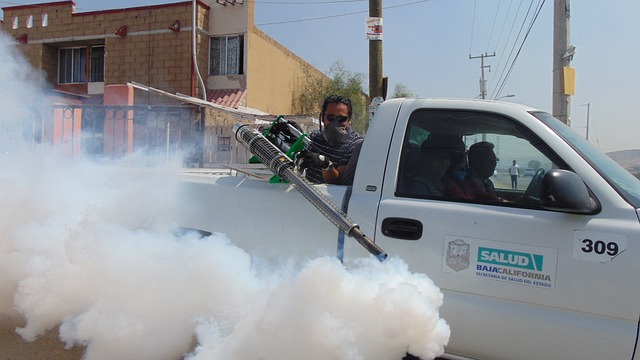
It is common to neglect small water storage container remains uncovered for a long time in our house premises. The mosquito can even lay eggs in a small amount of water stored inside an empty coconut shell or in the excess water in the household flowering pots. All of us should be aware and not store water in our house premises.
2. Control of Mosquitoes using chemicals
Various types of chemical insecticides are also used to kill mosquitoes. This includes the application of larvicidal insecticides or space spraying. Since the cost of the use of larvicidal insecticides is more costly, space spraying is more widely used.
Insecticides used for treating containers that hold water include Temephos 1% sand granules and insect growth regulators.
Space spraying may be applied as thermal fogs or as ultra-low volume sprays. Both methods are equally effective in killing adult mosquitoes. (8)
3. Control of mosquitoes using selected fish
Certain fishes eat the larvae of mosquitoes and prevent the growth of mosquitoes.
The guppy fish (Poecilia reticulata), also known as million fish and rainbow fish, is a very common type of tropical fish. It is a freshwater fish. They eat larvae of insects including mosquitoes.(10)
Mosquito fish or gambezi (Gambusia affinis) is a freshwater fish usually grown in shallow water that can eat a large number of mosquito larva. These fish should be kept in a permanent water storage container to prevent mosquito growth. They are very effective to control all mosquito-borne diseases like dengue, malaria.(11)
However, mainly due to their high cost, most of these methods have been restricted to small scale field operations.
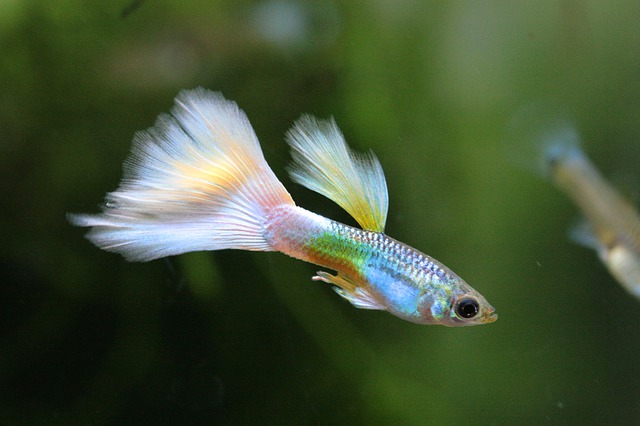
4. Control of Mosquitoes using Herbs
There are certain herbs which are act as a natural insecticide. Neem leaves, ginger leaves and turmeric leaves are such types of herbs that can effectively be used against Aedes aegypti mosquitoes.
- Neem leaves and neem oil
- leaves and Neem oil are an effective purifying agent and natural mosquito repellent. They should be applied in the damp areas 2-3 times in a day.(12)
- Turmeric leaves
- you will be surprised to know that turmeric leaf extract can kill 40% larva within a day (24 hours) and the larva killing rate increases to 49% in two days (48 hours).(9)
- Ginger leaf extract
- leaf extract is even more effective to kill mosquito larva than that of Turmeric leaf extract. Within a day, ginger leaf extract kills 68% larva and 70% larva in 2 days. (9)
- The Mixture of turmeric leaf extract and ginger leaf extract
- a mixture of turmeric leaf extract and ginger leaf extract is 100% effective to kill the larva of Aedes aegypti mosquitoes. For controlling mosquito growth, the use of a mixture of ginger and turmeric leaf extracts has several advantages over the other methods. These include-
- This is an eco-friendly method of killing the mosquito larva and controlling their growth.
- This is a very low-cost method
- Both the turmeric leaves and ginger leaves are agricultural by-products which are usually just wasted.
- The effectivity of the method is 100%
- This method is very useful to control Aedes aegypti mosquitoes. (9)
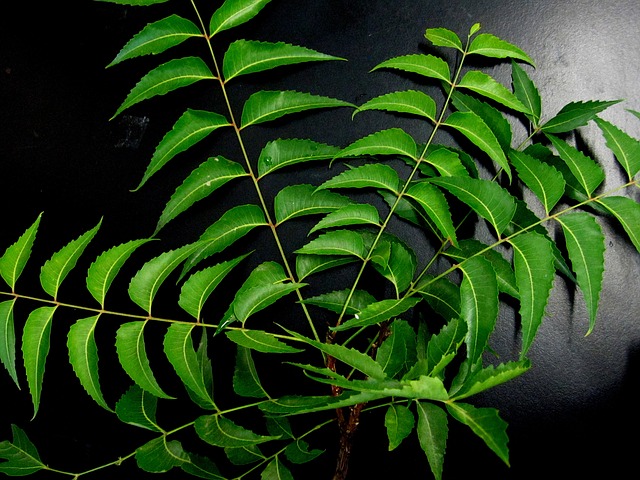
5. Control of Mosquitoes using Microbes
Certain bacteria (Bacillus thuringiensis serotype H-14 and Bacillus sphaericus are commonly used) produce endotoxin which kills mosquito larvae. B thuringiensis is more effective against A aegypti but it has a very low level toxicity against mammals. It is accepted for use in household water storage containers. (8)
Bottom Line
Dengue is a serious disease which has no specific treatment. To date, there is no vaccine effective against the disease. Since female Aedes aegypti mosquitoes are the main culprit of spreading the disease, Dengue can be prevented by controlling or killing the mosquitoes.
Mosquito bites can be prevented by taking personal protection like wearing long-sleeve clothes, fitting window-screens and using mosquito repellents.
Ginger and turmeric leaf extracts should be added to the water storage containers in the house. This is very effective to kill mosquito larvae.
All the water storage containers should be covered so that mosquitoes can not lay eggs. Rainbowfish should culture in the shallow water bodies like ponds to prevent mosquito growth.
Even today, all of us are nor aware enough regarding the cause and consequences of Dengue fever. So, spreading awareness is essential to reduce Dengue incidence in the locality.

